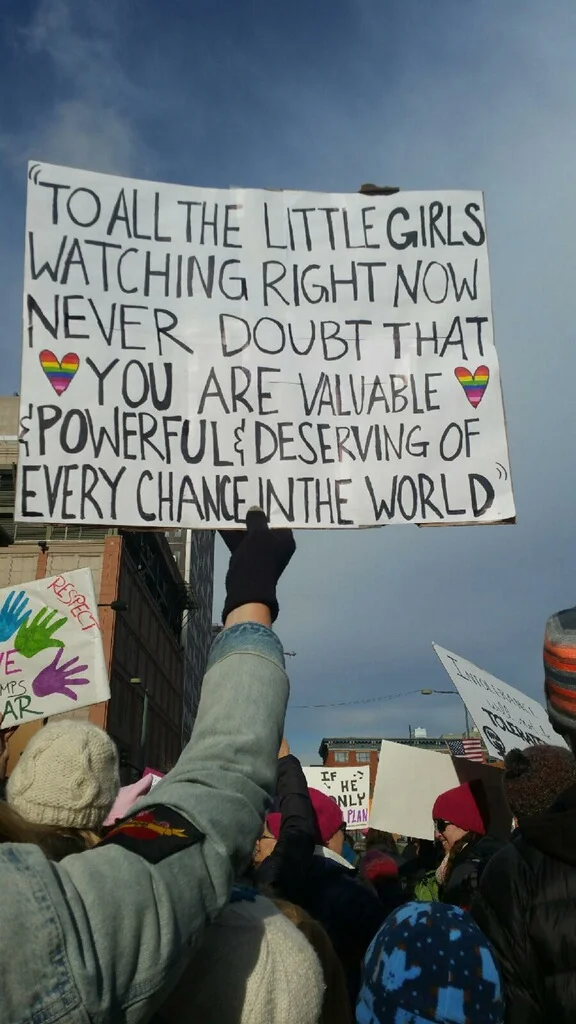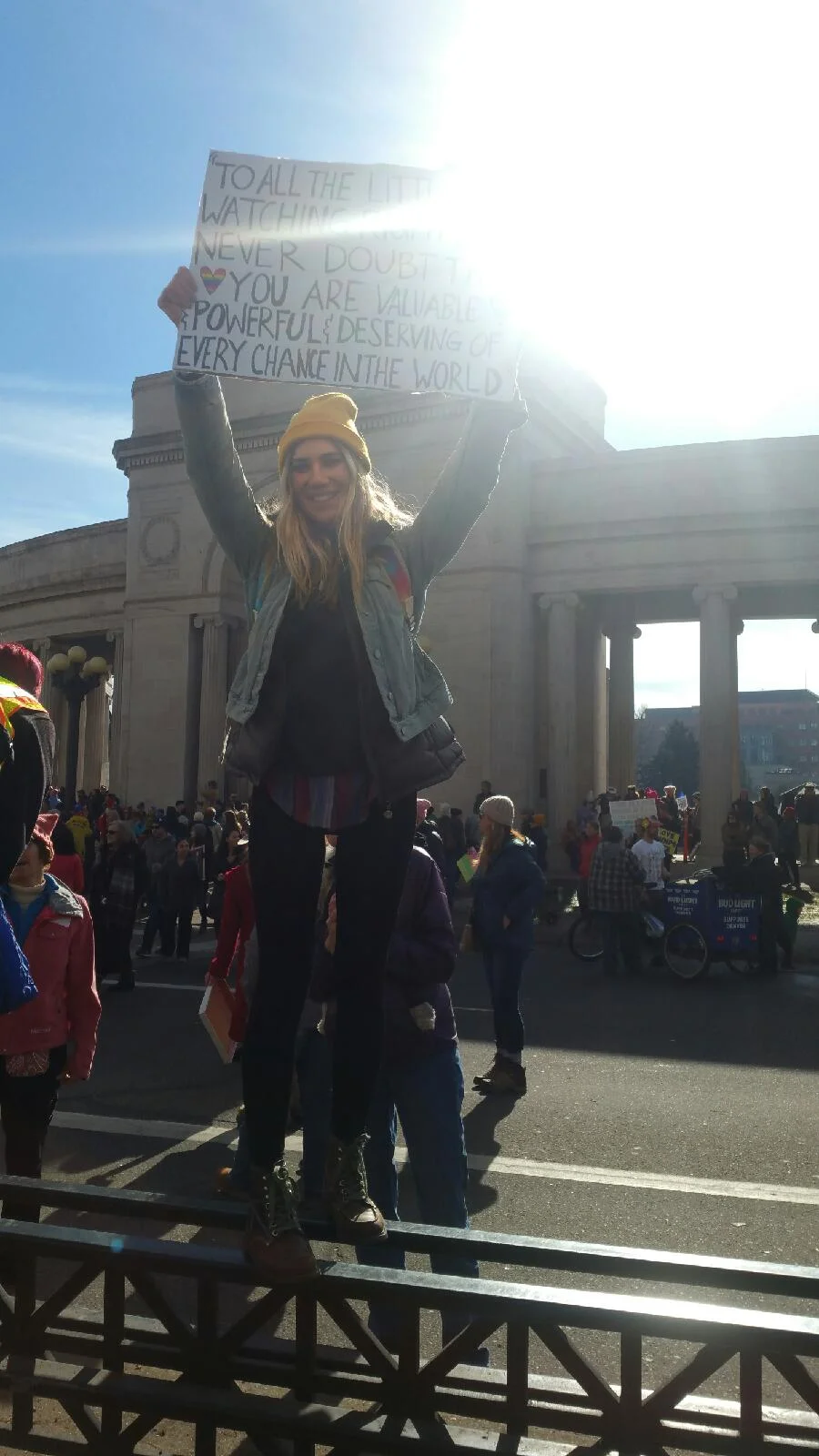OUT FRONT: Why We March: Thousands Gather in Denver for Women's March
Originally published on OUTFRONTMagazine.com on Jan. 23 2017
January 21 marks a historic day for women. Across the world, women stormed the streets in allegiance to one another, and to their cause. Millions of people of all races, genders, classes, abilities, and minds filled cities with cries of hope and conviction, in a march for their lives.
We stood beside each other unknowing and scared.
The only thing we were sure of was that on this day, with this one movement, we marched as one across the starting line of an epic fight.
We reminded each other that this is a shared battle; it is a personal and allied struggle to be seen and recognized. At the Women’s March across America, we stood as living proof that we cannot be torn down.
In the aftermath of a significantly troubling election, many women and minorities feel disregarded and inexplicably disrespected. While many empathize with this pain, others wonder why we are still whining. There is a notion of the “sore loser liberal” and their unwarranted temper tantrums. Nevertheless, more than 100,000 bodies joined together in Denver alone in just one of the 674 marches that took place, totaling over 2 million activists. I am proud to have been one of the 100,000 marching in Denver on Saturday.
So why are we marching and what do we hope to accomplish, you might ask?
The event began as a small Facebook invitation sent by Teresa Shook from Hawaii. Following the results of the election, Shook invited 40 friends to march in Washington D.C. the day after the inauguration to promote solidarity of women. The event page spiraled, leading to an estimated 500,000 to march on the National Mall Jan. 21.
But the idea itself was not novel. The original “Million Woman March” in 1997 was a black-woman led event centered upon female solidarity but with a larger emphasis on race. As activist ShiShi Rose reminded via social media, “…No ally ever got very far, in any movement, without acknowledgement of their own privilege daily.” Char Adams shared in this idea, explaining that “black women have long experienced what white women are now complaining about: feeling alienated.”
Rose and Adams speak to a problem that arises when movements like the Women’s March are generalized.
While the march has been popularized by those who feel their rights are at stake under President Trump, but the specific experiences of those who are angry and afraid differ vigorously. It is important that any movement holds grounding principles for those involved, but it is also imperative that varying degrees of privilege must not be ignored. We must evaluate and acknowledge our own privilege, and then address points of unity and how we can best stand as one.
The official Women’s March on Washington page outlines the unifyingprinciples of this movement.
They are captured in the statement “we believe that women’s rights are human rights and human rights are women’s rights.”
The site goes on to address issues of violence, reproductive rights, queer rights, worker’s rights, civil rights, disability rights, immigrant rights, and environmental justice as the unifying principles outlining why exactly we march.
“All four years, we’ll be here” rang throughout Denver’s Civic Center Park on Saturday. I heard it, I felt it, and I chanted it.
It is true that our democratic process brought a new president into the White House. But it is also true that we will not be silent for the next four or eight years. It is our civic duty to question those that govern us and the ideals they teach the country to stand for.
This march celebrated those who have been pushed aside throughout our nation’s history. And it is only the first major movement to occur during this presidency. We will be seen. Those that march represent all those who refuse to rest on the heels of inequality.
We march because we matter. Because we all matter. Because women’s rights are human rights. Because no girl should ever be told otherwise.





